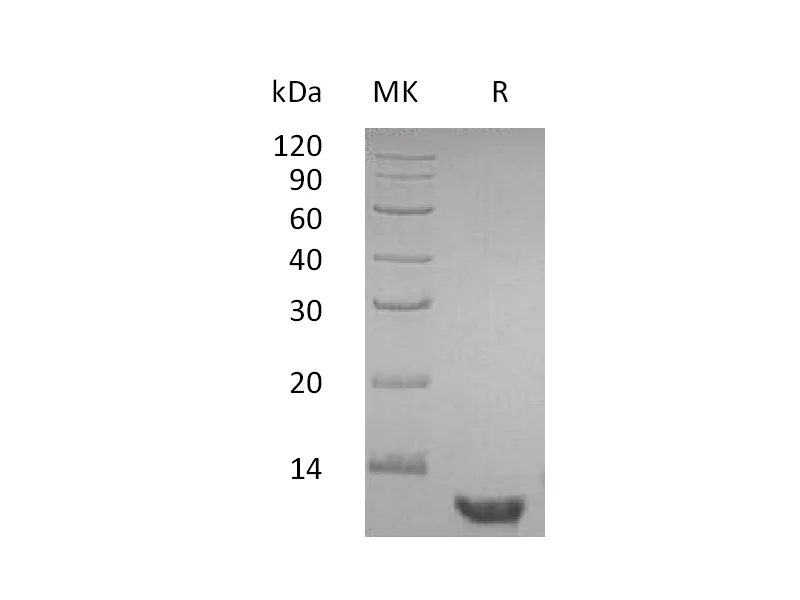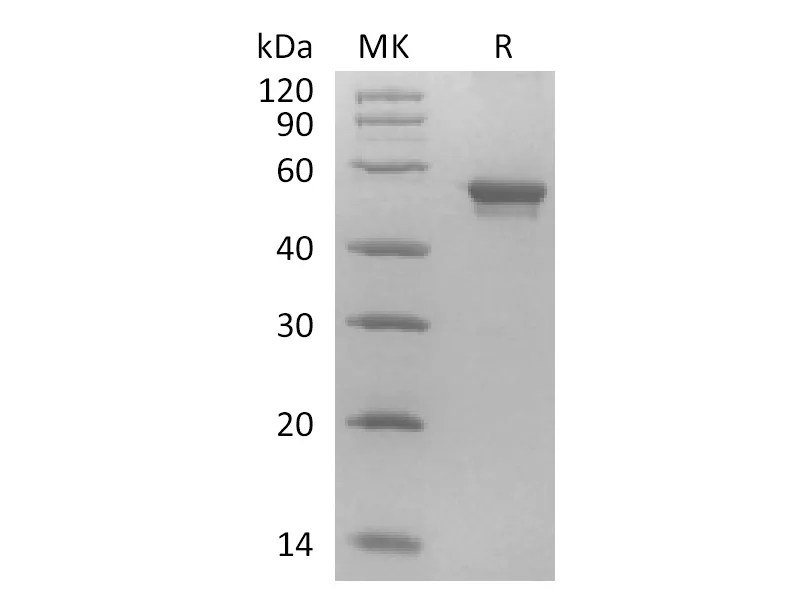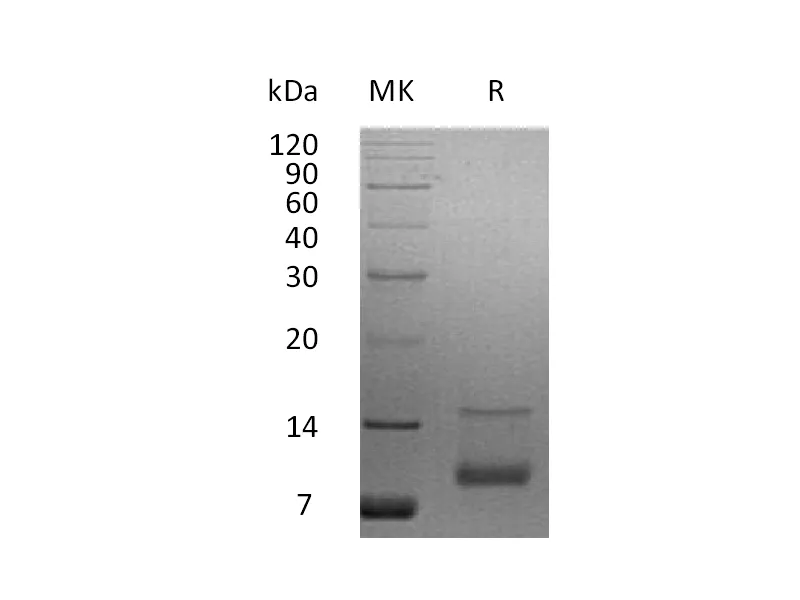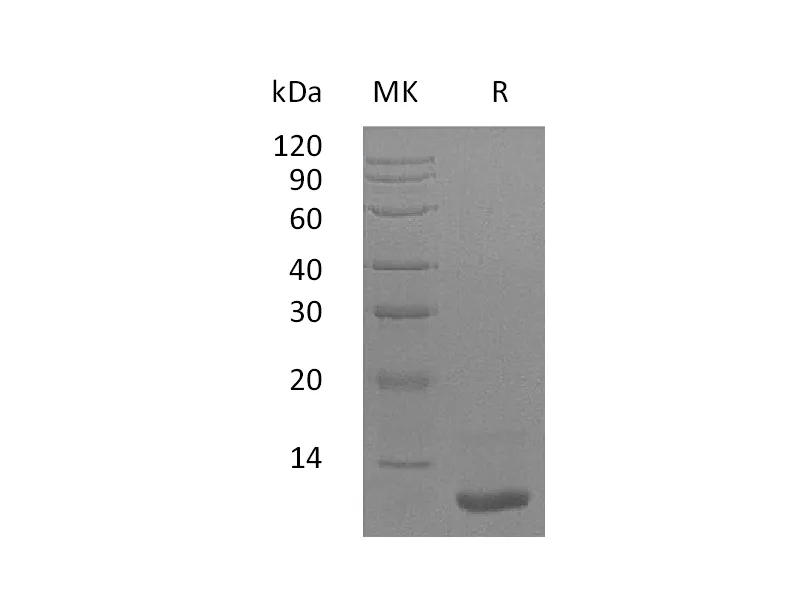| 产品名称 |
Recombinant Mouse CCL3 (N-6His) |
| 英文名称 |
CCL3/MIP-1 alpha/MIP-1a/C-C Motif Chemokine 3 |
| 纯度 |
Greater than 95% as determined by reducing SDS-PAGE |
| 内毒素 |
<1 EU/µg as determined by LAL test. |
| 蛋白构建 |
Recombinant Mouse C-C Motif Chemokine 3 is produced by our E.coli expression system and the target gene encoding Ala24-Ala92 is expressed with a 6His tag at the N-terminus. |
| Accession |
P10855 |
| 表达宿主 |
E.coli |
| 种属 |
Mouse |
| 预测分子量 |
10.8 KDa |
| 制剂 |
Lyophilized from a 0.2 μm filtered solution of 20mM Tris-HCl, 150mM NaCl, 5%Trehalose, 1mM EDTA, pH 8.0. |
| 运输方式 |
The product is shipped at ambient temperature.Upon receipt, store it immediately at the temperature listed below. |
| 稳定性&储存 |
Lyophilized protein should be stored at ≤ -20°C, stable for one year after receipt.Reconstituted protein solution can be stored at 2-8°C for 2-7 days.Aliquots of reconstituted samples are stable at ≤ -20°C for 3 months. |
| 复溶 |
Always centrifuge tubes before opening.Do not mix by vortex or pipetting.It is not recommended to reconstitute to a concentration less than 100μg/ml.Dissolve the lyophilized protein in distilled water.Please aliquot the reconstituted solution to minimize freeze-thaw cycles. |
| 分子别名 |
| C-C motif chemokine 3;Heparin-binding chemotaxis protein; Macrophage inflammatory protein 1-alpha;MIP1-a; chemokine (C-C motif) ligand 3; LD78a; LD78 alpha; MIP-1 alpha;Scya3 |
| 背景介绍 |
| C-C Motif Chemokine 3 (MIP-1 alpha,CCL3 ) is a member of the beta or CC subfamily of chemokines and is closely related to CCL4/MIP-1 beta. CCL3 expression can be induced in a variety of hematopoietic cells, fibroblasts, smooth muscle cells, and epithelial cells. Mature mouse CCL3 shares 73%, 91%, and 82% amino acid sequence identity with human, rat, and cotton rat CCL3, respectively. CCL3 exerts its biological functions through interactions with CCR1, CCR3, and CCR5. It is cleared from the extracellular space by internalization via the decoy chemokine receptor D6. CCL3 promotes the chemoattraction, adhesion to activated vascular endothelium, and cellular activation of many hematopoietic cell types including activated T cells, NK cells, neutrophils, monocytes, immature dendritic cells, and eosinophils. CCL3 is also known as stem cell inhibitor (SCI) and can inhibit the proliferation of hematopoietic progenitor cells. CCL3 bioactivity contributes to tumor metastasis and the inflammatory components of viral infection, rheumatoid arthritis, and hepatitis, although it also can suppress the replication of HIV. |
注意事项
本司产品仅用于科研,不用于临床诊断和治疗




